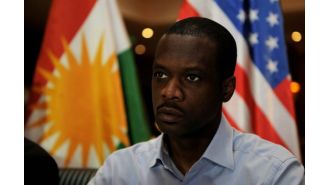Holding two conflicting thoughts at once
Elon Musk is likely going to be remembered as the entrepreneur of this generation. SpaceX and Starlink have achieved incredible feats. And switching from a Chairman role to run Tesla Motors day-to-day while still being the CEO of SpaceX may go down as one of the most important moves ever made in the history of business.
When I look at the chart below – showing the growth in market share of electric vehicle in European countries – I see multiple countries reaching tipping points (Norway, is of course, the outlier). And I wonder if this might have been possible if not for Elon Musk.

I think we often overestimate the impact of individuals. But in this case, I’m not sure it is an overestimation.
In 2006, he shared his “secret masterplan” for Tesla.
Build sports car
Use that money to build an affordable car
Use that money to build an even more affordable car
While doing above, also provide zero emission electric power generation options.
After looking at the chart below and seeing the dominance of the Model Y and the Model 3, it is hard not to marvel at that secret masterplan and the incredible execution that brought that plan to life.

Tesla has changed the game – forever. And it is unlikely that would have happened without Elon at its helm.
With all this said, I do think Elon has underestimated the challenges of running Twitter. Steven Johnson had a thoughtful post that resonated with what I’ve been mulling. A key excerpt –
Musk likes to talk about how he runs all his businesses from “first principles”—starting with what the laws of physics will let you do, and building out from there—which is apparently an excellent strategy if you are making rockets for a living, or electric batteries. But the things that make Twitter such a hard nut are not “first principles” problems. The rallying cry of free speech sounds like it should be a law straight out of Newton, something fixed and undeniable, but in practice—like so many of the variables at play in social media—it turns out to be more like quantum mechanics: murky and unpredictable, more probabilities and gray areas than absolute truths. Twitter is a political and sociological problem—a problem rooted in conflicts over values—not an engineering problem. It requires a different set of skills.
I don’t think he is in over his head – even if it is fair to ask – “when is it going to be too much?” But going after Twitter’s Chief Legal Officer in public while ignoring the fact that she reports to a CEO (Jack Dorsey) who must bear ultimate responsibility felt like the sort of rookie mistake he wouldn’t have made at a different time.
I think Elon will go down in history as one of the greatest entrepreneurs of all time. I also think he’s made a big mistake acquiring Twitter.
It is an exercise in holding two conflicting thoughts at once.
I’m hoping to be proven wrong and I’m hopeful none of this impacts the work he’s doing moving Tesla’s incredible vision forward.






